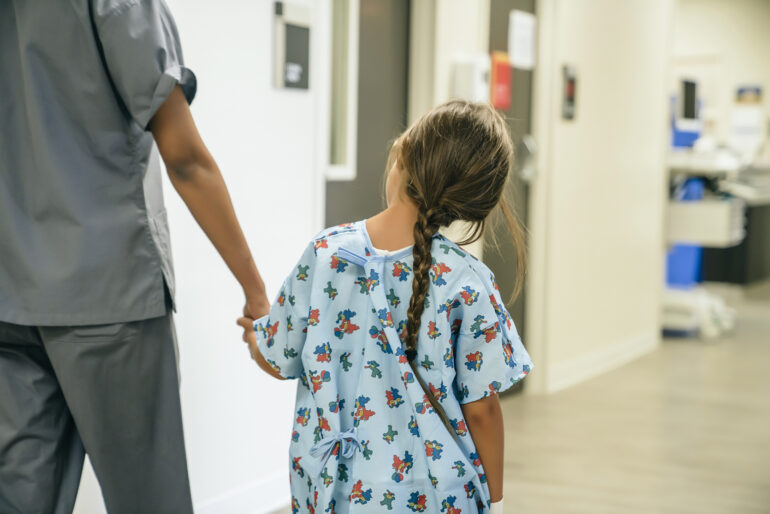More than 5 million children undergo surgery every year. A majority of pediatric patients experience what child life specialists call “Frozen Fear”, intense preoperative anxiety that can persist through sedation. This response can spike cortisol levels, lengthen recovery time, and even cause long-term trauma.
A study published in the Journal of Child Life confirmed that age-appropriate digital interventions, like guided media and educational content, can significantly reduce pre-op anxiety without sedatives.
In response, Hope Always Foundation developed The Warrior Tablet, a unique digital tablet that is remotely secured and filled with positive content. I can trace back the genesis of the program to a simple but powerful statement my older sister and hero, Becca, once made:
“Everybody has opinions, but very few people seem to have solutions.”
Becca’s Story
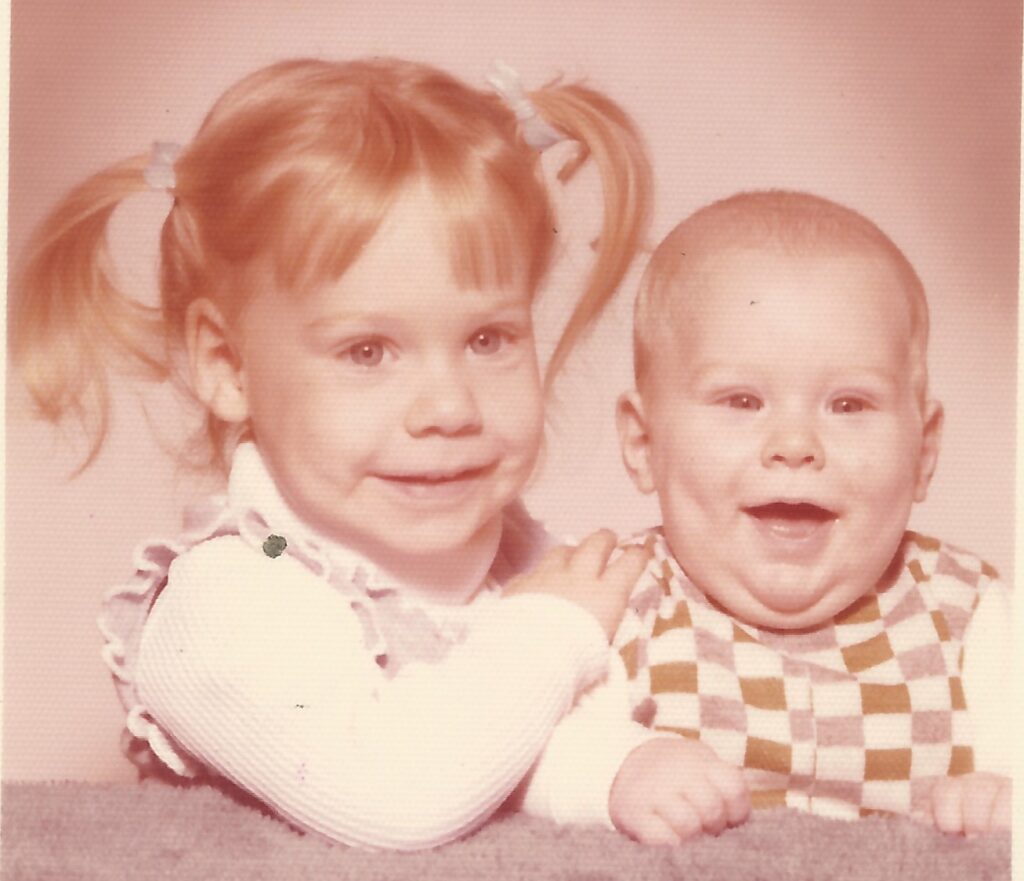
Becca, while courageously battling a brain tumor, started a teen cancer support group in our living room because none existed in San Diego at the time. While most kids her age were heading off to college, Becca established a community in the middle of a crisis.
This was before smartphones and YouTube, before you could pull a distraction from your pocket. We spent long hours in hospitals and waiting rooms, and although those days were unimaginably hard, they taught me just how powerful a laugh can be.
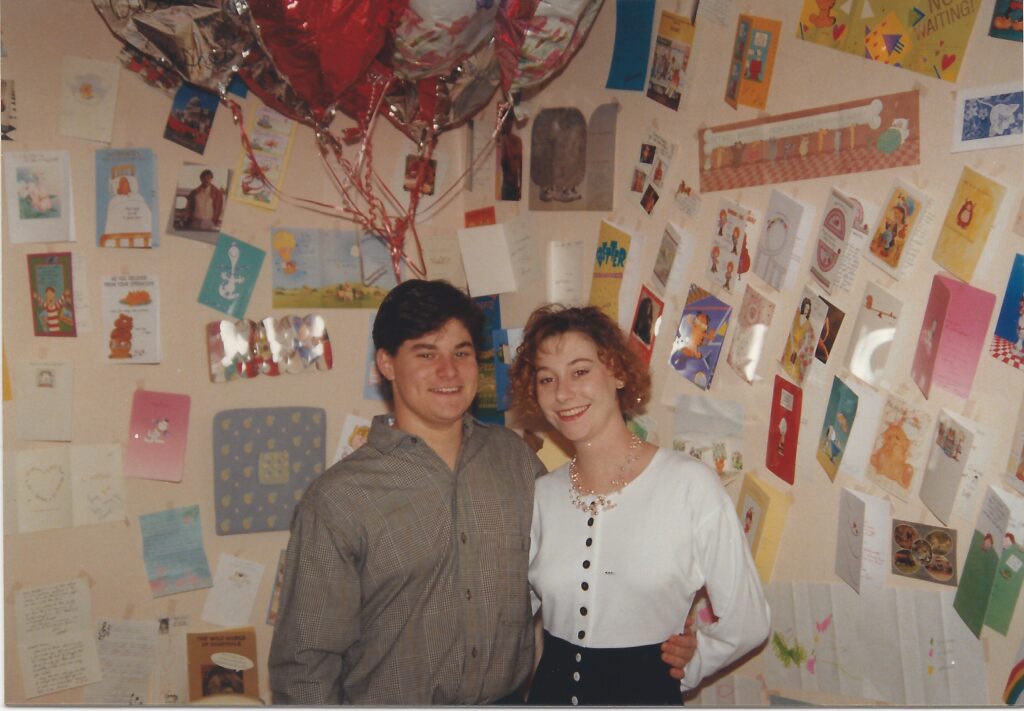
Decades later, kids are still waiting in those same rooms with those same fears — only now they’re handed tablets or phones to “stay occupied.” But staying occupied isn’t the same as staying safe. In fact, the digital world can be just as harmful as it is helpful.
Reimagining Technology to Help Kids
According to the U.S. Department of Health and Human Services, adolescents who spend more than three hours a day on social media are twice as likely to experience depression and anxiety.
Multiply that by four hospital walls, and the problem compounds.
That’s why Hope Always Foundation customizes and donates digital tablets to Ronald McDonald Houses and children’s hospitals like Rush University Children’s Hospital. Each Warrior Tablet is remotely secured and preloaded with licensed movies, shows, music, and relaxation content. No YouTube. No social media. No open internet. No ads. No trackers. Just the best content available.
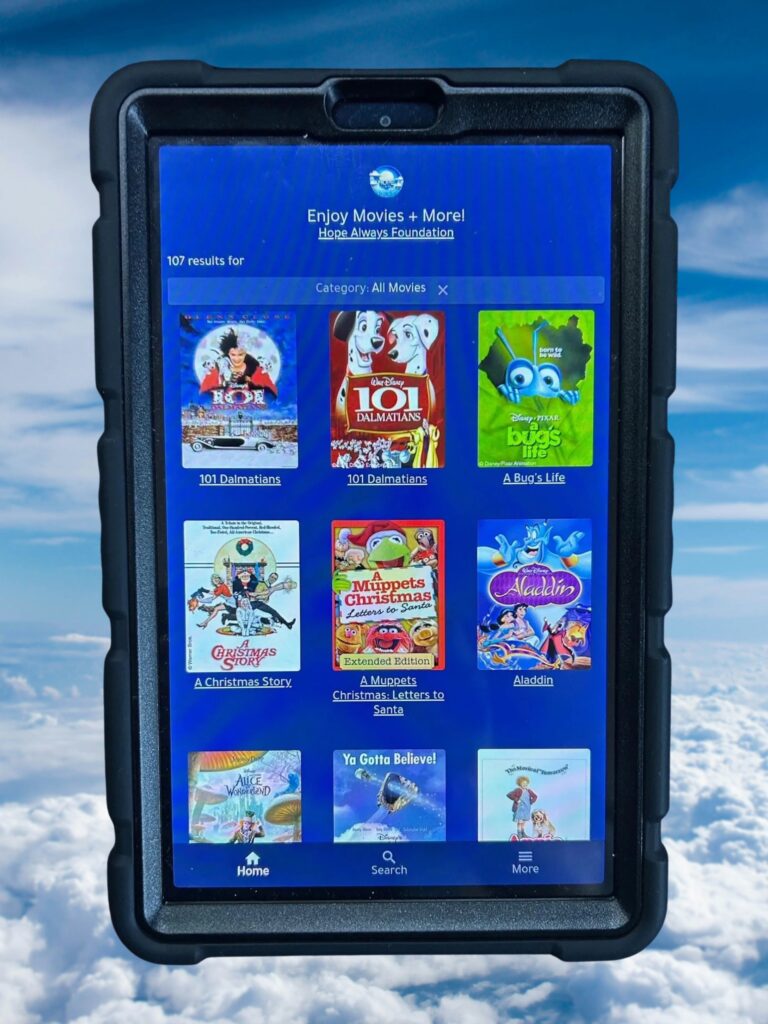
Warrior Tablets also feature Vooks, animated, read-aloud video books that bring the joy of reading to hospitalized kids. These screen-based stories promote early literacy, emotional comfort, and inclusivity, thanks to diverse characters and soothing narration.
“The tablets have been a great source of comfort and distraction for our patients,” says Madelyn Hernandez from the Ronald McDonald House.
The Effects of Unregulated Technology on Teens
Recently, the Pew Research Center reported that 45 percent of teens say they spend too much time on social media, a jump from 36 percent in 2022. Teen girls are especially vulnerable: 25 percent say social media harms their mental health, 20 percent say it damages their confidence, and 50 percent report poor sleep as a result.
Not every family has access to safe, calming digital tools. Many low-income households can’t afford the apps, subscriptions, or parental controls needed to create safe digital spaces. According to the National PTA, 65 percent of parents are concerned about their child’s online safety, and more than half fear exposure to adult strangers.
Our Warrior Tablets help bridge that gap. They provide relief, representation, and real peace, especially for lower-income families stuck in isolated environments.
Spanish-speaking families have also told us how vital culturally inclusive content has been. “Thank you for including the movies in Spanish, most of our families are Spanish speaking, so they really appreciate it,” says Francisco Gallegos from Ronald McDonald House Pasadena.
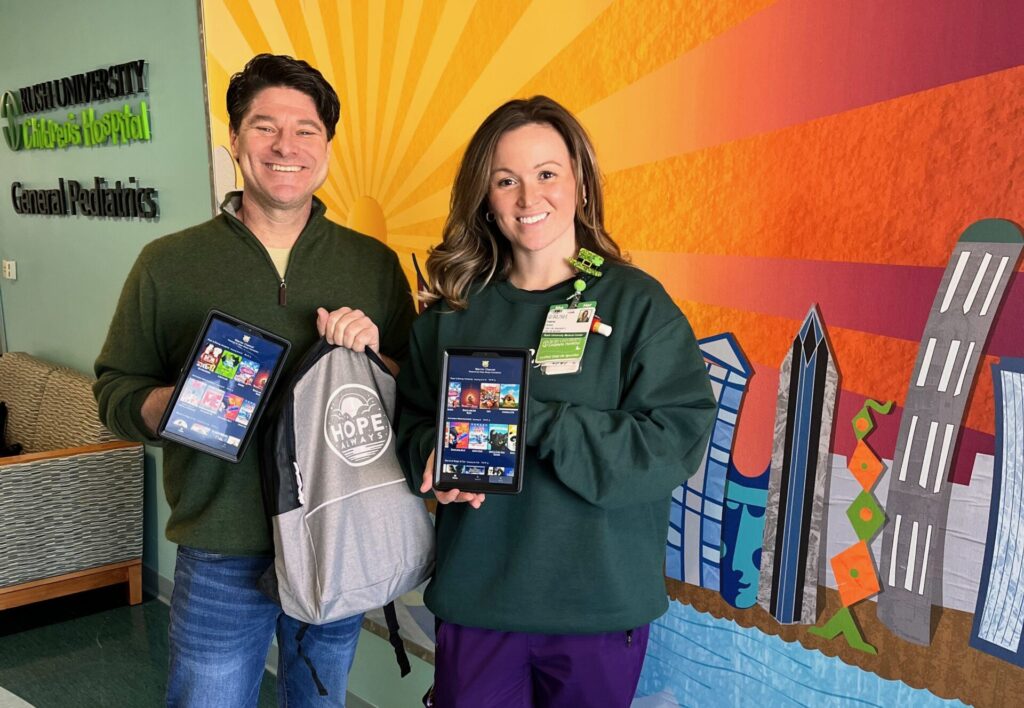
Continued Technology Innovation
At Stroger Jr. Cook County Hospital, the need is even more pressing. “Locked down tablets are perfect for so many of our patients,” says child life specialist Ruth Charendoff. “We don’t have donors or a development team to secure digital support.”
Later this year, we’re launching Teen Warrior Channel, a new initiative tailored specifically for adolescents ages 13–18. At the same time, our Research and Development team is developing secure, in-room entertainment systems that will transform hospital TVs into curated wellness platforms — bringing comfort and connection to the big screen.
Everything we do at Hope Always Foundation is in honor of Becca. Her bravery, humor, and unshakable courage continue to inspire our mission: to comfort, uplift, and entertain every sick child in America with real solutions.
How to Help
Hope Always Foundation is a nonprofit organization committed to using technology to provide comfort, joy, and hope to pediatric patients. Donate to support their mission or get involved, visit: www.hopealwaysfoundation.org.

This post was submitted as part of our “You Said It” program.” Your voice, ideas, and engagement are important to help us accomplish our mission. We encourage you to share your ideas and efforts to make the world a better place by submitting a “You Said It.”
Bobby Kesselman’s work spans across the entertainment industry. He’s voiced more than 700 episodes of hit animated series, including Family Guy, American Dad, and Invincible, and spent over two decades as a video editor at Fox Sports, where he helped broadcast more than 10,000 hours of programming to over 100 affiliates. In 2024, Bobby founded the Hope Always Foundation, a nonprofit organization dedicated to entertaining sick children across America.
